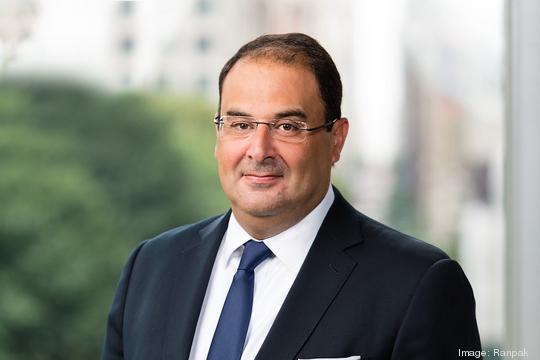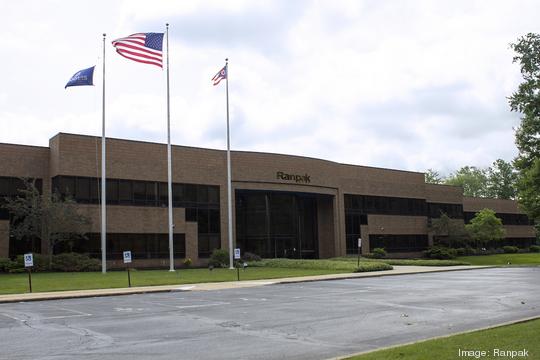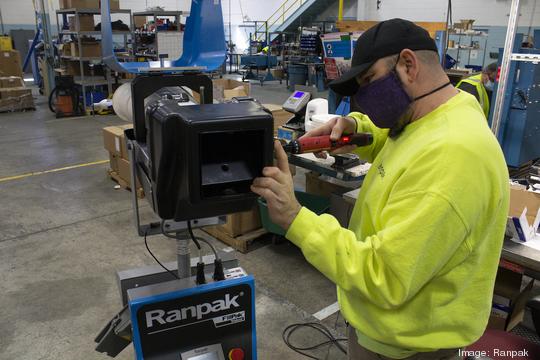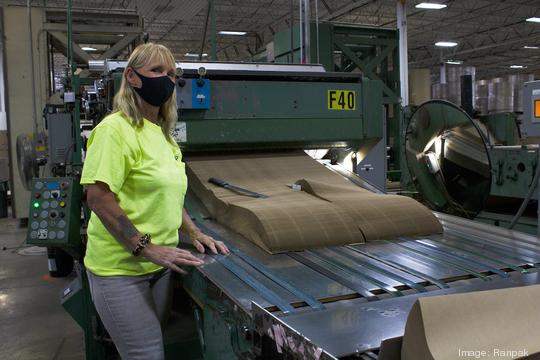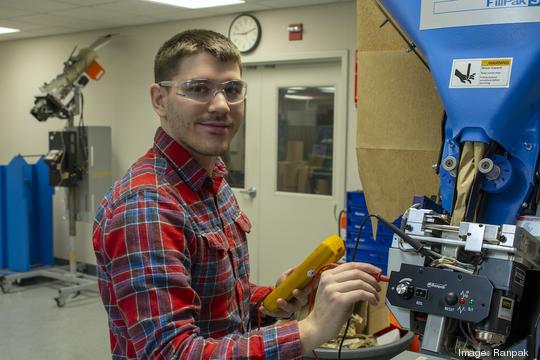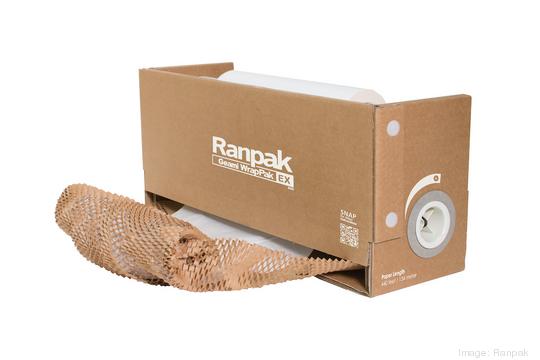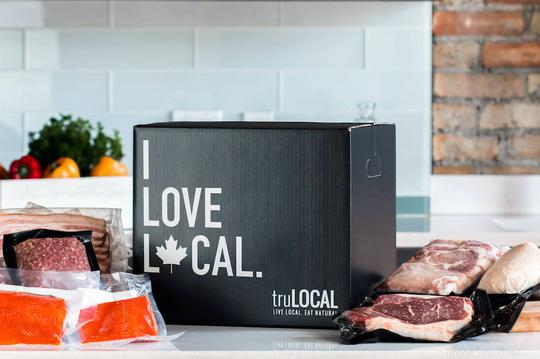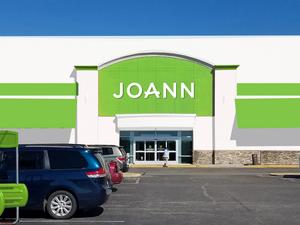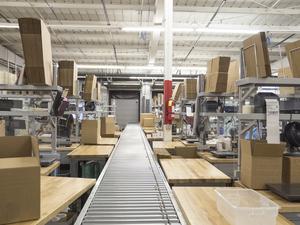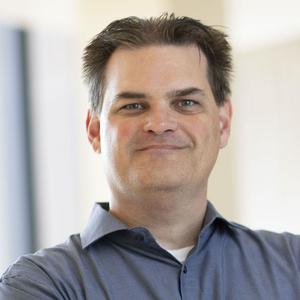Ranpak Holdings Corp., the maker of eco-friendly packaging technologies and materials, is gearing up for an international expansion fed partly by the coronavirus pandemic.
"Covid accelerated e-commerce beyond our expectations," said Omar Asali, chairman and CEO of Ranpak in Concord Township, Ohio.
Ranpak's business that supplies equipment and engineered materials for use in industrial supply chains slowed during the pandemic.
"But the growth in e-commerce more than compensated for the slowdown in industrial activity," Asali said.
Meanwhile, "the need for automation grew exponentially" during the pandemic because companies wanted fewer human contacts in their shipping operations, he said.
Planning for growth
Now that the pandemic is winding down and Ranpak's headquarters workers — executives, engineers, administrators and the like — are returning to the workplace, the company is resuming its growth plans:
- Remodel and add a product showroom at its headquarters building at 7990 Auburn Rd.
- Look for real estate for its sixth manufacturing plant, likely in China or the Asia Pacific.
- Continue to invest in artificial intelligence and machine learning.
- Hire more engineers and materials scientists.
Investing in tailwinds
Asali, an immigrant from Jordan, left the former HRG Group as its CEO and president in 2017 to start One Madison Group, a family office that invests in "innovative businesses positioned to benefit from the economy, society and climate of tomorrow," according to One Madison's website.
The former co-head of hedge fund investing for Goldman Sachs formed a special-purpose acquisition company in 2018 and soon started looking at Ranpak.
"My team and I got pretty excited about what we considered to be big tailwinds at Ranpak, which are sustainability and e-commerce, and that's why we pursued the acquisition," Asali said.
In 2018, China stopped buying plastic waste from the United States, destining even more of the indestructible stuff for the nation's landfills.
Because Ranpak makes packing materials from paper that is renewable, biodegradable and curbside recyclable, the company could help the world reduce its shipping waste.
"Plastic pollution is real," Asali said. "There is somewhere between 5 billion to 6 billion tons of plastic waste floating in the ocean and in landfills. I'm very proud that we are part of the solution."
AI and machine learning
The Concord Township company makes the paper dispensing machines that fold, cut, bunch, crimp and stitch kraft paper as packing for everything from meal kits to aftermarket automotive parts.
Workers can use the machines to produce packing for boxes, but the machines also can be used in automated packing systems that set up, pack and seal boxes for shipment.
Automation powered by artificial intelligence and machine learning has become a third tailwind for the company.
"We own a small automation business in Europe, which we have been investing in and expanding, making it more of a global offering," Asali said.
The automation business also has "hired a lot of engineers, computer scientists and technical people to expand that business," he said.
Corporate structure
Asali merged his special-purpose acquisition company with Ranpak in 2018, taking the Concord Township company public.
The company completed a secondary offering of shares in May, raising about $110.3 million before expenses, according to a regulatory filing.
That excluded almost $10 million for Asali, who sold 400,000 Ranpak shares he owned directly and 100,000 shares he owned indirectly through an investment company he controls for $21 per share, according to a regulatory filing.
Ranpak has strong cash flow — a benefit of its "razor and blades" business model through which it sells machines one or a few times and then sells its folded kraft paper many times over the life of a client relationship.
Steady cash flow and its recent share offering have enabled Ranpak to repay some of its debt so it has a lot of room to invest in operations.
